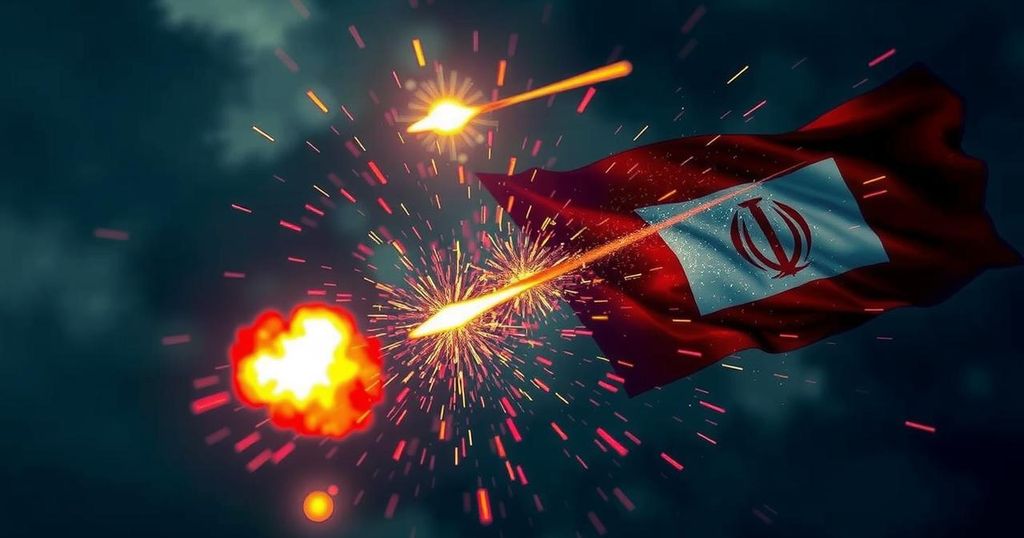Iran has warned the UN about Israeli threats to its nuclear sites, while Israel has conducted airstrikes in Lebanon, causing civilian casualties and escalating regional tensions. The WHO is facilitating the evacuation of Palestinian women and children for medical care as the humanitarian crisis in Gaza worsens. The U.S. has increased military support for Israel amid these tensions.
In the escalating tensions across the Middle East, Iran has officially alerted the United Nations nuclear watchdog regarding threats posed by Israel against its nuclear facilities. Esmaeil Baghaei, a spokesperson for Iran’s foreign ministry, expressed these concerns during a press conference on Monday, highlighting that threats aimed at nuclear installations violate UN resolutions and warrant condemnation. This warning comes on the heels of Israeli military statements indicating a willingness to retaliate against Iran following missile strikes launched by Iran on October 1. In a different context, the Israeli military has issued an apology for an aerial strike that resulted in the deaths of three Lebanese soldiers in southern Lebanon, asserting it was not targeting the Lebanese military but rather believed it was striking a Hezbollah vehicle. As Hezbollah announced its intention to escalate its conflict with Israeli forces, local fears have surged, particularly among communities hosting Lebanese citizens displaced from conflict areas. In humanitarian developments, the World Health Organization reported plans to evacuate up to 1,000 Palestinian women and children from Gaza to Europe for urgent medical care, in light of a broader Israeli blockade on the region’s besieged population. Moreover, Israeli airstrikes have targeted buildings linked to Hezbollah across Lebanon, including alleged financial institutions, further raising tensions in the region. Additionally, the United States is reinforcing its military presence in Israel through the deployment of the THAAD missile defense system, amid concerns surrounding potential Iranian missile activities. This strategic response aims to bolster Israeli defenses against anticipated retaliatory actions following the recent exchanges of missile fire between Iran and Israel. Lastly, the humanitarian situation in Gaza remains dire, with reports of deliberate attacks against civilian infrastructure, including hospitals. An increasing number of casualties, primarily among women and children, underscores the severe impact of ongoing hostilities in the area.
This article details the recent military and diplomatic developments in the Middle East, particularly focusing on the increasing hostilities between Iran and Israel. The tensions have been exacerbated by missile exchanges and military strikes, which have raised fears of broader regional conflict. The humanitarian crisis in Gaza remains critical, as many civilians face severe shortages of medical care and basic necessities amid escalating violence. The involvement of international organizations, such as the WHO, reflects the growing international concern regarding the impact of the ongoing conflict on civilians. Additionally, the U.S. military’s enhanced support for Israel illustrates the strategic alliances at play in this volatile region.
In conclusion, the Middle East remains embroiled in a complex web of military and humanitarian crises, marked by heightened tensions between Iran and Israel. Both nations are engaged in an aggressive exchange of missiles and airstrikes, which have resulted in significant casualties and displacement among civilian populations. International response measures, particularly from organizations such as the WHO, highlight the urgent need for humanitarian assistance in affected areas. The geopolitical implications of these events continue to unfold, demanding close attention from the global community.
Original Source: www.theguardian.com






